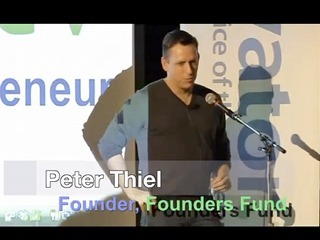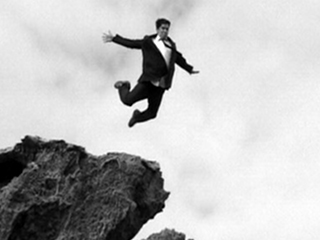Many people, including Vator’s Bambi Francisco, refer to PayPal as the quintessential example of a company that pivoted before pivoting and agile development were popular movements.
Scott Banister, an early PayPal investor, told us that PayPal’s original plan was thrown out the window. “PayPal had probably 40 people before the full transition from Palm Pilot payments onto eBay payments,” he said. Eric Ries puts it this way: “A good example is Paypal realizing that their customers were gravitating to the email-payments part of their original solution, and ignoring the complex PDA-based cryptography solution.”
Many people also have their own versions of PayPal’s early days and why it became the home to so many successful entrepreneurs. The reason many give is that PayPal’s challenges were significant. After all, it was creating a new global currency. Not exactly a small feat. The pressure-cooker environment helped prepare the future entrepreneurs for their own entrepreneurial journeys, which is more often than not, a long and arduous road.
So who better to tell the “real” story about PayPal than the leader of the pack?
Peter Thiel, the first investor in Facebook and a board member, who is also now heading up Founders Fund (Silicon Valley early-stage venture firm) and Clarium Capital (hedge fund), was a co-founder (along with Max Levchin) and CEO of this legendary company. If PayPal is a mafia, as many refer to it as, then Peter is the “Don.”
At Vator’s Splash event this September, Peter gave his version and post-morterm of PayPal. He started by first holding up a $100 bill. It’s valuable because it means something to more than one person, he said. But “it’s not clear if it has intrinsic value,” he said. “If you’re the only person that valued it, why would you use it?” Creating value in a new form of currency amongst a critical mass was the intellectual challenge that Peter and his co-founder Max Levchin wanted to pursue.
The challenges of creating adoption and handling fraud, let alone finding a revenue model, were enormous endeavors they took on. And, it took them and their team $180 million to figure out.
Peter goes on to talk about those challenges in detail. Finding the platform on which this new currency would be adopted was the first problem to solve. Palm Pilots seemed promising originally, but the startup soon realized that payments were better via email. Adoption was so tricky that PayPal started paying $20 in acquisition costs per customer, said Peter. The company launched in October 1999. By April 2000, the company had one million users (after spending $20 to acquire each user). “We had $15 million in the bank, and our burn rate had us running out of money in six weeks,” he said. The business model was another tricky puzzle to figure out. The company was faced with running out of cash, managing growth and figuring out a model at the same time.
“The business model was all sort of complicated up-selling models,” Peter explained. The ideas were to sell users a credit card, a stock brokerage account, or maybe even a house. As it turned out, the model turned out to be far more simple – charge a small transaction fee.
Finally, a couple takeaways Peter offers with regards to starting a company: 1) Create something that’s fundamentally a big idea 2) Be contrarian.
People thought an online payment system was impossible, said Peter. He and his team wanted to prove the naysayers wrong. And, this stubborn mindset, as well as the tenacity and drive to stick with a purpose and goal, is probably one of the main reasons PayPal spawned great entrepreneurs.
So, who are some of the PayPal mafia and what did they go on to do? Max Levchin, co-founder and CTO, went on to find Slide, which was sold to Google for some $228 million in August 2010. PayPal COO David Sacks went on to find Geni.com and Yammer. Elon Musk, who became part of the PayPal team after it merged with his company X.com, went on to find Tesla Motors and SpaceX. PayPal engineers Steve Chen and Jawed Karim and Web designer Chad Hurley went on to find YouTube (bought by Google in 2006 for $1.6 billion.)

















